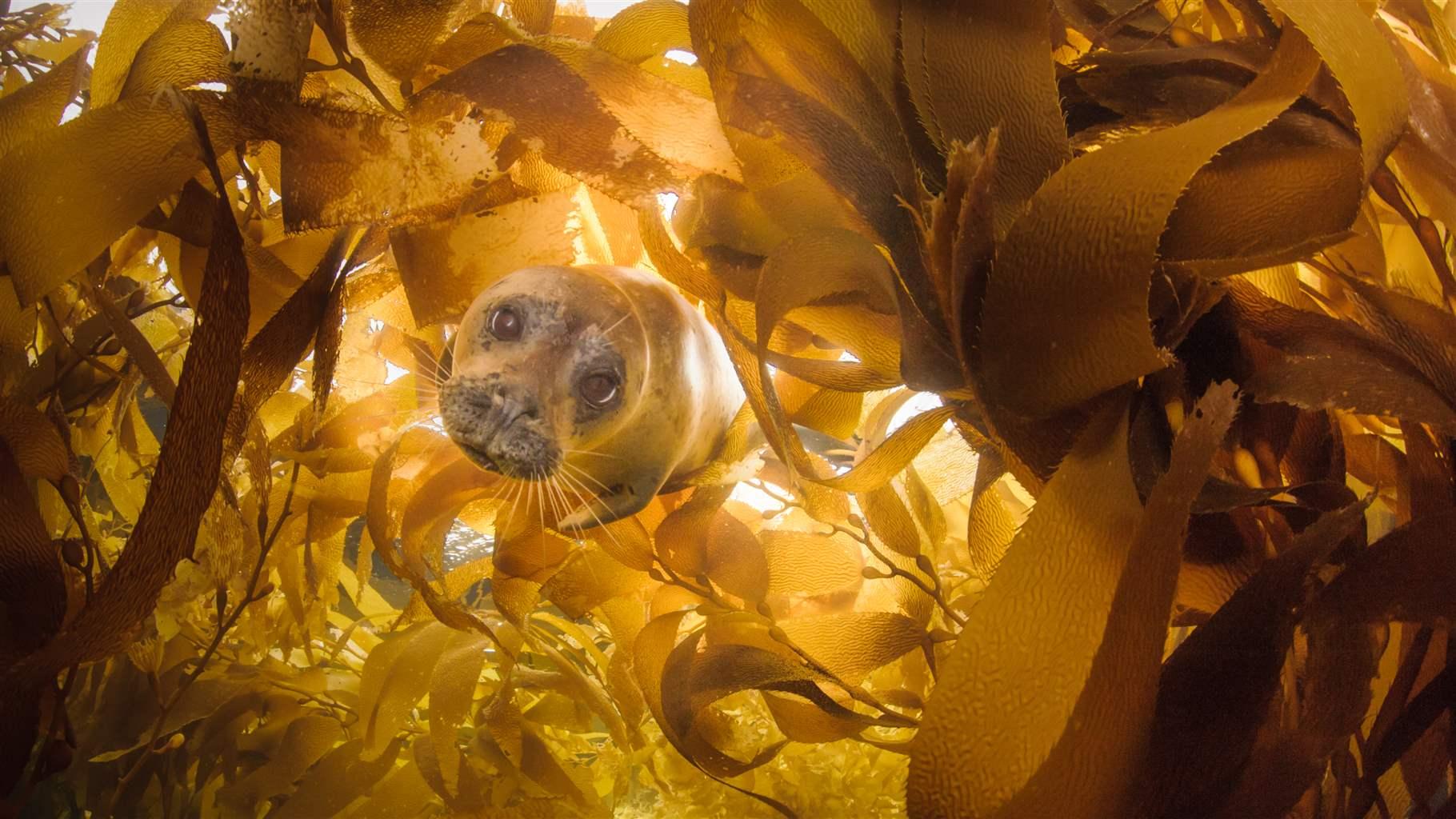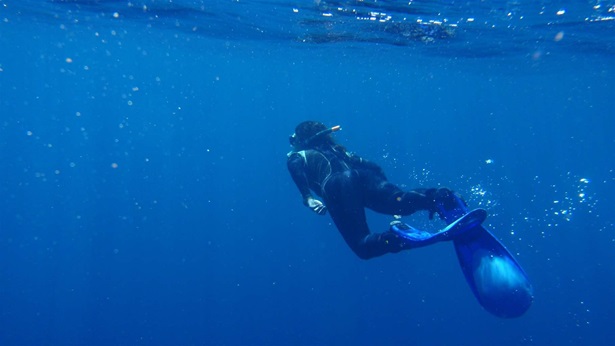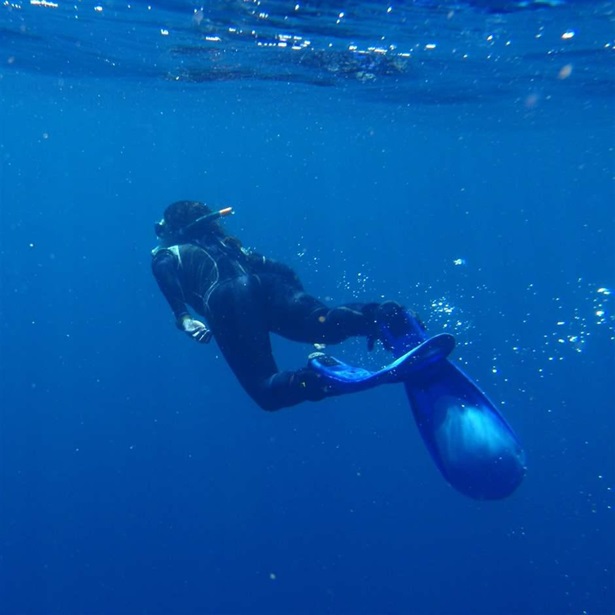Explore an Underwater World Through These 6 Dazzling Instagram Images
Scientist, photographer, and Pew marine fellow Octavio Aburto shares his photos from Mexico

The mangroves of the Gulf of California, along the coast of Baja, Mexico, are pulsing with life—such as the harbor seal, above, photographed in the San Benito Islands. This diverse bounty captivated marine ecologist and photographer Octavio Aburto, who in 2018 received a Pew marine fellowship to research and conserve the Gulf’s mangrove ecosystems. “Reversing the decline of these habitats isn’t just a science—it’s an art,” Aburto says.
Aburto shared some of his photographs of these mangrove ecosystems, as well as what the marine fellowship has meant to him, in a three-day “takeover” of the @pewenviroment Instagram account; the takeover culminated in the announcement of the 2020 class of Pew marine fellows.
“As a Pew marine fellow, it’s my mission to create science that can help these ecosystems persist beyond my years on this planet,” Aburto says. The captions accompanying each photo below are in his words.
In 2018, I had the honor of receiving a Pew marine fellowship to support my work researching and documenting mangroves in the Gulf of California. This picture of grunts, from Danzante Island in Mexico’s Loreto Bay National Park, is one of my favorites—it captures the importance of mangroves for nurturing fisheries.
Mangroves serve as nurseries for juvenile fish, including many species of commercial importance, yet are incredibly vulnerable to deforestation and other anthropogenic impacts. Deforestation for coastal development is one of the largest threats to wetland habitats, mangroves, and the species that inhabit them.
Can you believe how beautiful mangroves are from a drone’s perspective? My colleague Astrid Hsu (@_hsumar) and I have worked on an innovative method of monitoring these highly important ecosystems, such as this mangrove forest in Magdalena Bay.
Using drones, we’ve remotely imaged entire mangrove forests, estimating biomass and identifying species distribution. This method is less costly and less time-consuming than conventional surveying, and can provide us with baselines to compare the state of forests year to year.
Paired with science, photography is an amazing tool that allows you to tell stories of conservation. It has helped me in more ways than I had ever imagined.
I had the privilege of visiting this mangrove forest in La Encrucijada, a biosphere reserve in Chiapas, Mexico. These giants can grow up to 30 meters (about 100 feet) tall. They form an important habitat for hundreds of species, many of which are juvenile commercial fish.
At the same time, mangroves provide coastal protection, sequester carbon, filter water, and hold cultural importance for coastal communities. These are only some of the reasons I’ve dedicated much of my time to studying these remarkable ecosystems.
This tiny trapezia guard crab was resting on a beautiful coral in Mexico’s Cabo Pulmo National Park. The details in this picture remind me of how delicate the marine environment is and how humanity must care for our marine resources better.
While wading in a mangrove lagoon in Cuba, I encountered this impressive American crocodile. In addition to providing indispensable ecosystem services, mangroves are also home to hundreds of species of plants and animals.
My Pew marine fellowship research mainly focuses on mangroves, and photography has been a wonderful vehicle for this scientific and conservation work.
The support of the Pew marine fellowship has allowed me to collaborate with other conservation scientists on my favorite subjects: mangroves and blue carbon. Last year, I was able to coordinate a Pew workshop in Hawaii related to blue carbon with a wonderful network of Pew fellows and other scientists. I’m excited to continue this work, which is both personally fulfilling and, I hope, beneficial for these remarkable environments.
A list of the 2020 recipients and their projects is available here.
Polita Glynn directs the Pew Fellows Program in Marine Conservation for The Pew Charitable Trusts.













